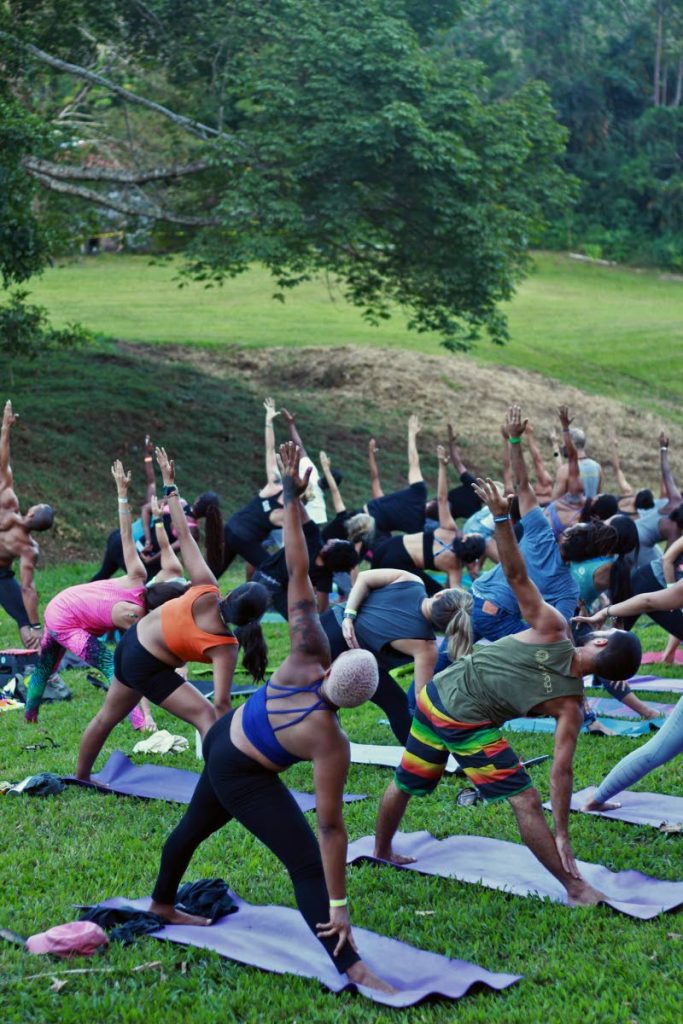How to spark a pandemic of wellness

kmmpub@gmail.com
If we make it easy for ourselves to cut sugar and get more shut-eye and exercise, our wallets will expand as fast as our waists shrink.
The week after Carnival is always one of great resolve and sudden religious fervour as we absorb a healthy dollop of guilt and sacrifice. But what if we could improve productivity without sacrificing anything at all?
We don’t sleep and exercise. We rarely skip dessert. Boy is it costing us. The Rand Corporation reckons lack of sleep alone shaves up to three per cent off GDP worldwide. In TT that works out to as much as $4.9 billion each year. Heaping sugar and plenty of sofa time finish the job, costing another $6.8 billion annually, says RTI Consulting. Our alarming rate of lifestyle diseases makes our population more susceptible to global pandemics like covid19.
Everyone knows the solutions. Cut out screen time an hour before bed and set our alarm for the same time each morning. Commit to some sort of physical activity three times a week. Eat and drink half the amount of sugar or sweets that we currently do.
Easier said than done, I’m afraid. As Nobel-prize winning behavioural economist Daniel Kahneman writes in Thinking Fast and Slow, the brain channels most decisions through “instinctive” paths because that is more efficient. For most of us, those instincts are to reach for the soft drink, choose the sofa over the gym and allow the thumb to idly continue deep Instagram research well past bedtime.
From time to time, we summon up the energy to use the blunt force of will to bully ourselves into better habits. This almost always fails. After that failure comes acceptance of those same poor habits that we couldn’t kick. We rationalise to ourselves that we like sweets or screen time and cannot conceive of giving it up. One step forward, two steps back.
Yet what if we made life easier for ourselves rather than setting ourselves up for sisyphean battles of spirit?
Let’s start with food. We often only decide what to eat when we are hungry. That is the worst time to do so. Trying to use willpower in that moment will pit you against millennia of evolution – not a fight I’d join in a hurry. It is much easier to make decisions to eat healthily while full. Then we can organise our shelves so there is little to tempt us when sugar cravings hit.
The same goes for sleep. Sweet dreams come much faster if you set all your devices to “night mode” with a soft yellow glow, limit light before bedtime, and aim to rise at the same time each morning (even if it means losing short-term sleep while you adjust).
“Pushing yourself” to the limit may work for pro athletes, but it demotivates the great majority of beginners. Research has consistently shown that if we succeed at something – even if it is small walk or run – we are much more inclined to want to do it again.
The key is to design your environment to support your new habits. Soon new instincts will form. You won’t even have to think about being good anymore. Research from the Harvard Business Review to such fine rags as Translational Behavioural Medicine all support this straightforward approach. Call it uncommon sense.
Success here translates directly to GDP. I spoke with Dr Safeeya Mohammed, CEO of SISU Global Wellness, who consults for companies on how to drive productivity through behavioural change. Dr Mohammed pointed out that one of the upsides of companies’ access to new productivity tracking technology is that it is easier to justify financial investments in health and wellness; and quickly track bottom-line payoffs.
If we reset how we live and work, we can create new economic spaces for those for whom wellness seems very far away indeed: the great majority of the population that cannot afford vegetables, and for whom sleep or exercise between three minimum-wage shifts are no option at all.
Yes, changing habits is hard. This piece is in no small part a motivational letter to me to keep trying. But the more of us that jump on the bandwagon, the easier time of it we will have. The powerful forces of peer pressure will exert themselves. We can meet covid19 with a pandemic of our own making: a pandemic of wellness.
Kiran Mathur Mohammed is a social entrepreneur, economist and businessman. He is a former banker, and a graduate of the University of Edinburgh

Comments
"How to spark a pandemic of wellness"